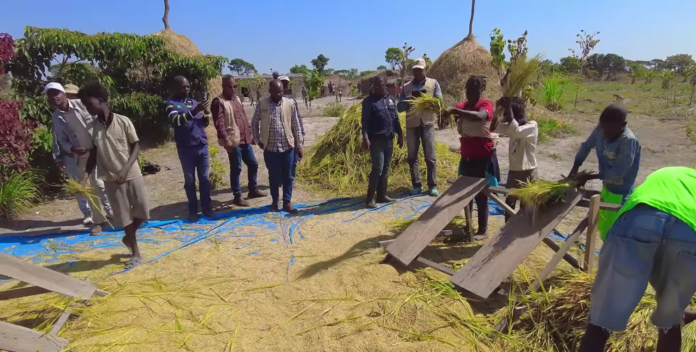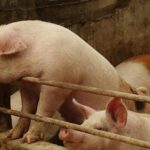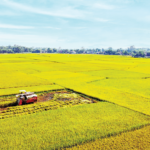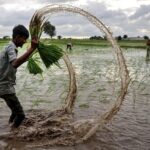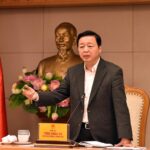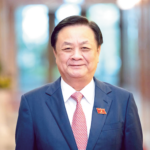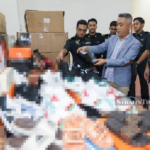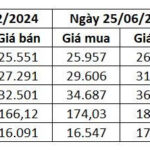The Director of the Huambo Provincial Department of Agriculture in Angola, along with a delegation of officials, recently visited the farm of Linh Philip, a member of the “Team Quang Linh Africa.” The purpose of the visit was to observe a rice cultivation model implemented by Vietnamese farmers in the region. This initiative is part of Angola’s efforts to enhance food security by exploring efficient and scalable agricultural models.
During the tour, the delegation visited the rice fields to monitor farming activities and witnessed local residents manually threshing rice. The rice variety used is Q5, which is familiar in Vietnam and has a growth period of approximately 3 months and 10 days. The first crop, harvested from September to January, yielded nearly 7 tons of rice, an impressive feat given the limited farming conditions in Angola.
However, Linh Philip shared that the second crop is facing challenges due to unfavorable weather conditions. The prolonged dry season and lower temperatures in June have hindered the rice’s growth, resulting in lower-than-expected yields.
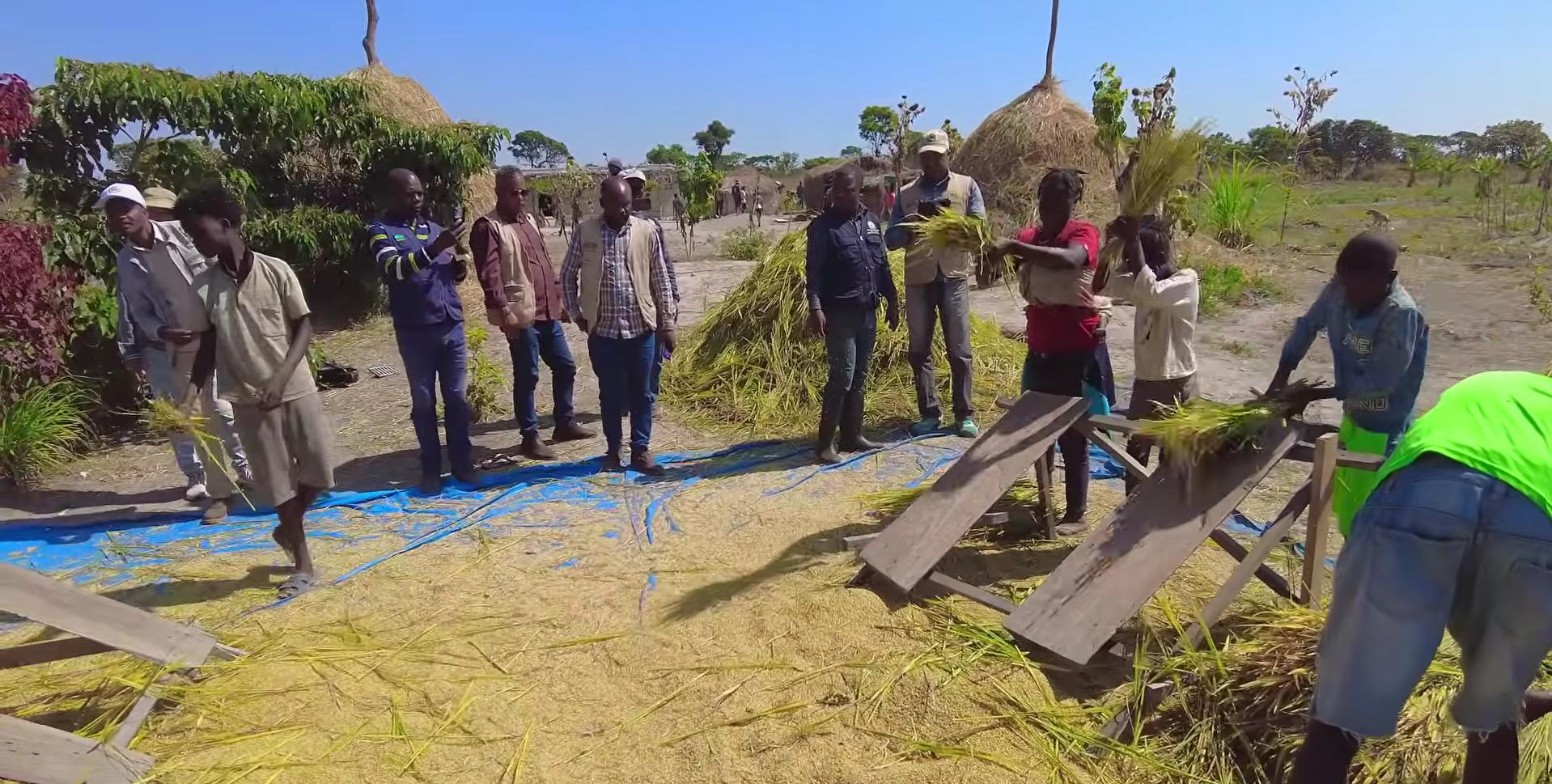
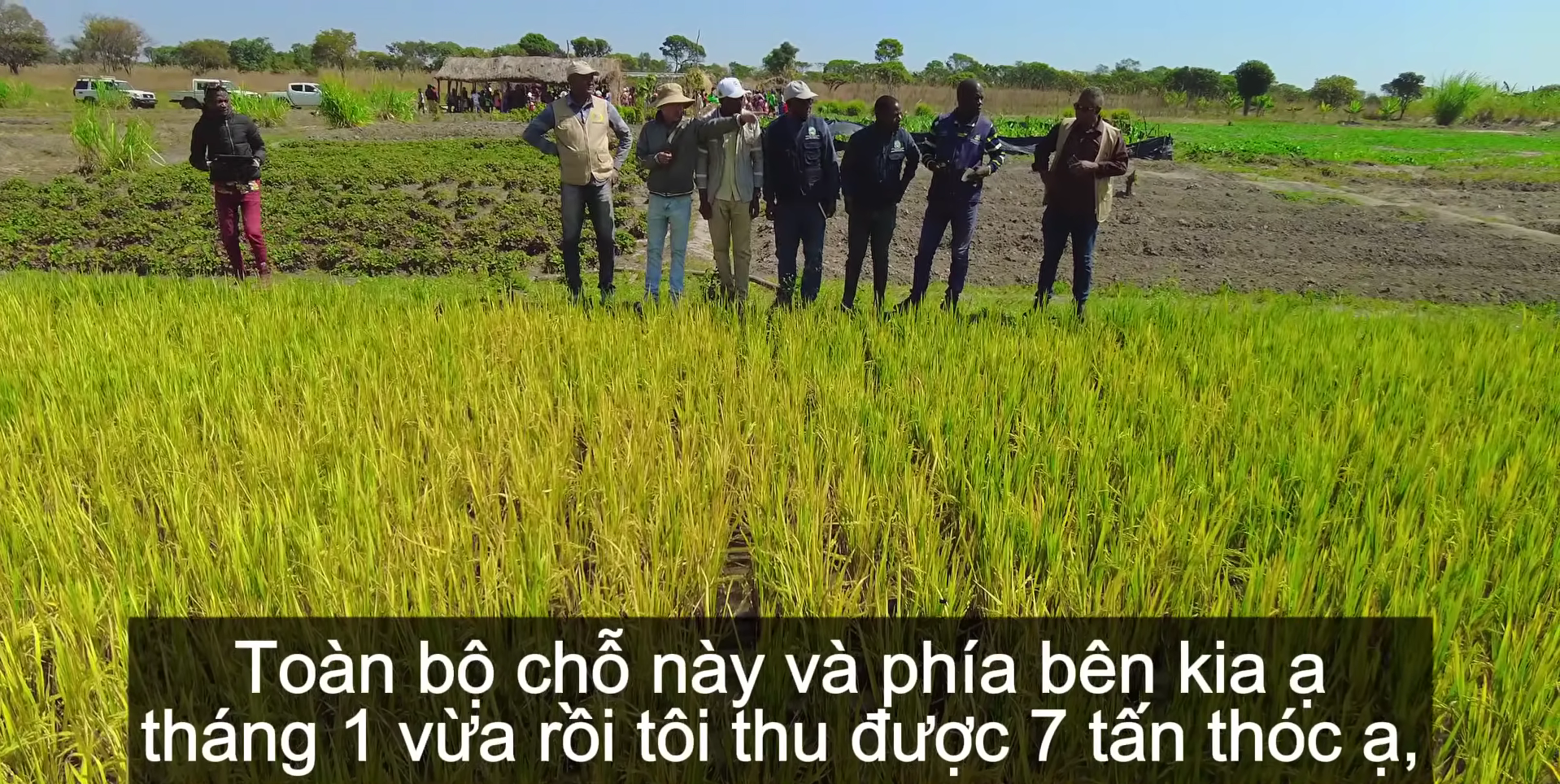
Linh Philip’s group has expanded their cultivation area to two main regions: Chilembo and Bailundo, in Huambo province. A notable aspect of their model is the involvement of local residents. When asked by the department officials if the workers were hired laborers, Linh Philip explained, “They are local people who come here to work and learn rice cultivation techniques. During the harvest, we distribute the produce equally among everyone.”
This model not only focuses on production but also serves as a practical training ground, empowering locals to gradually master farming techniques.
Additionally, Linh Philip utilizes rice milling machines, including one provided by the county (IDA machine), for the processing stage, completing the production value chain.
Recognizing the initial efforts and achievements, the Director of the Huambo Department of Agriculture expressed a keen interest in this model, emphasizing:
“We highly value the work you are doing. Please provide us with accurate data on the cultivated area and the participating households so that we can consider providing support and replicating this model.”
In response to this offer, Linh Philip expressed his desire for government support in the form of fertilizer, a critical input with high prices that currently hinders the expansion of the model.
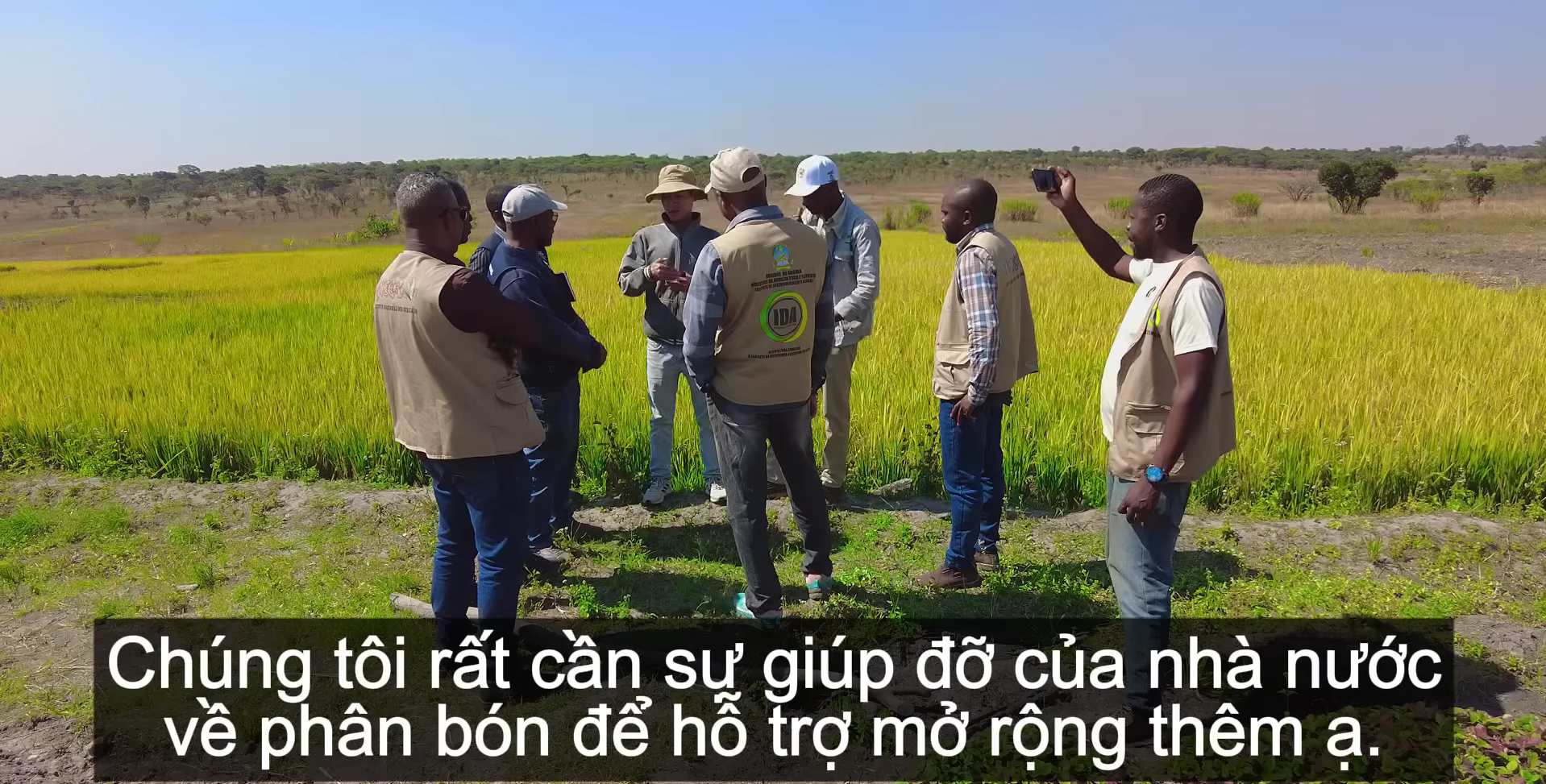
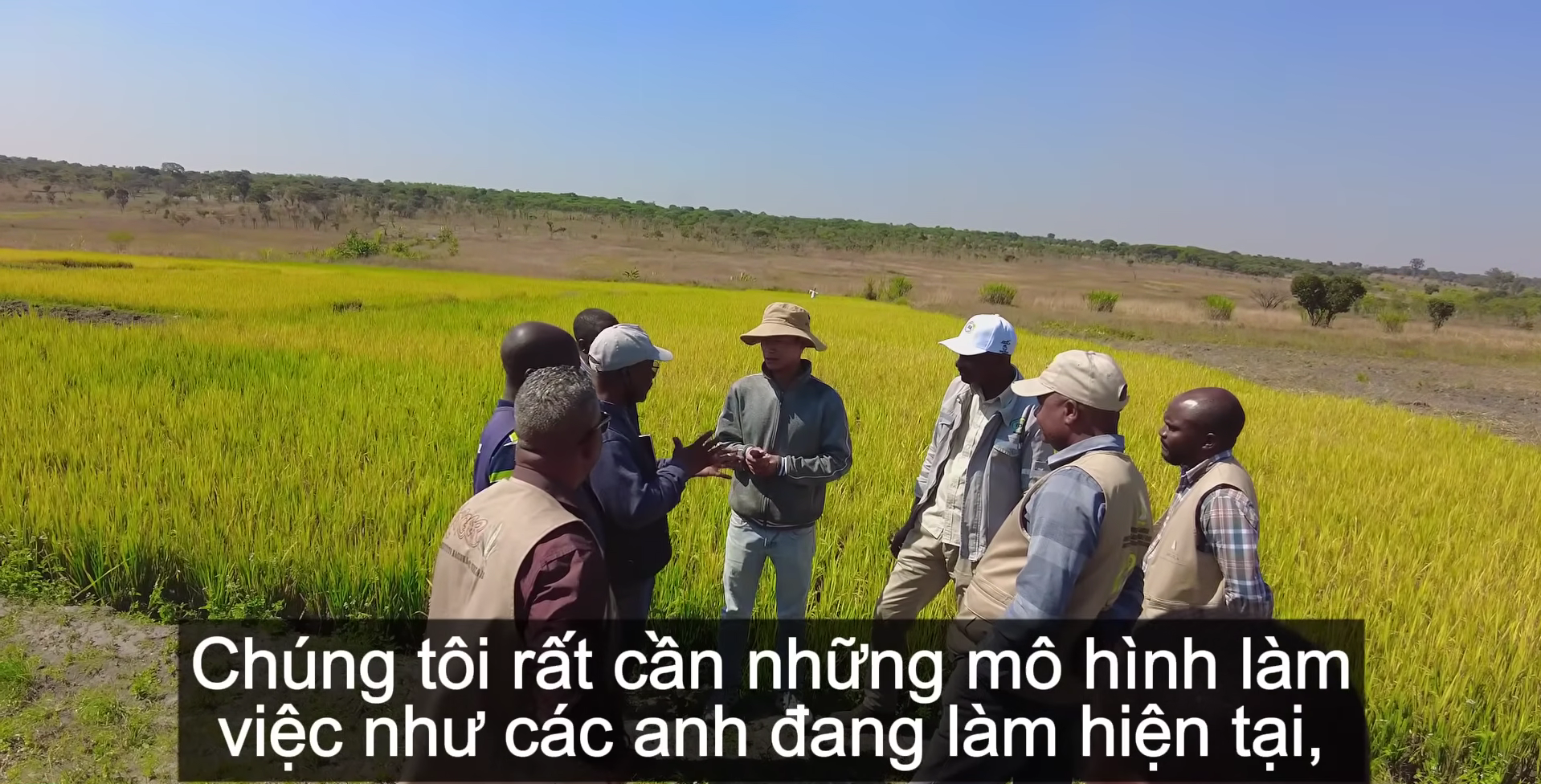
The meeting concluded on a friendly note, with the African team offering the delegation a refreshing glass of lemonade, reminiscent of a traditional Vietnamese rural beverage. As a token of their appreciation, Linh Philip presented the delegation with a bag of rice weighing approximately 50-60kg and a bag of sweet potatoes, symbolizing their sincere gratitude and the fruits of their labor.
The small fields cultivated by Vietnamese farmers in Angola hold great potential for the local rice cultivation model. Despite challenges related to climate, infrastructure, and resources, the support from local authorities and the community spirit of Team Africa lay a strong foundation for future success.
Securing Asia’s Rice Bowl: Vietnamese Rice at the Eye of the Storm
According to the South China Morning Post (SCMP), experts warn that escalating tensions between India and Pakistan could spark a widespread food security crisis across Asia.
“A Streamlined Powerhouse: Ministry of Agriculture and Environment Merger Results in a Lean 30-Unit Structure”
The Ministry of Agriculture and Environment has undergone a significant restructuring, consolidating and organizing its units. With a total of 53 units previously belonging to two separate ministries – 26 from the Ministry of Environment and 27 from the Ministry of Agriculture and Rural Development – the new ministry has been streamlined into an efficient 30-unit structure.
The Green Revolution: Celebrating 50 Years of Vietnam’s Agricultural Excellence
Over the past five decades, Vietnamese agriculture has witnessed remarkable progress, evolving from a state of significant scarcity to a country that ensures domestic food security and contributes to global food security as a leading rice exporter. With food security assured, Vietnamese agriculture has gradually transitioned from rice monoculture to a relatively comprehensive agricultural development approach.

























